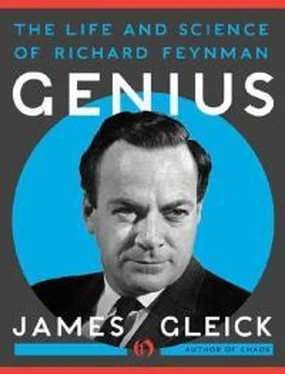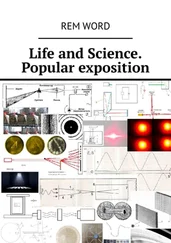I hope you are happy with your maid. Now you wil always have your sex laid on. I think I begin to understand what you mean by a “good relationship.” …
But I can’t understand why you are so afraid of marriage? Is it too dul for you? I thought think sex without love wasn’t isn’t very satisfying, that the satisfaction only came by both parties desiring the happiness of the other, given in complete faith, truth &
love without reserve. Anything short of that, I thought, was lust or fucking like animals.—Perhaps that is why you have such a large turn-over with your women.
A half-year later she final y returned his medal.
He surprised Gweneth with his excitement at the news that her visa had final y cleared the consulate. “Wel , at last!”
he wrote. “I was overjoyed to hear that you are coming at last.”
I need you more than ever… . I’m looking forward to being much happier… . I have to take care of you too, you know. As soon as you arrive here you are a responsibility of mine to see you are happy & not scared.
He had pared back the domestic side of daily life in minimalist fashion, striving for the least drain on his consciousness. When Gweneth Howarth final y arrived in the summer of 1959 she found a man with five identical pairs of shoes, a set of dark blue serge suits, and white shirts that he wore open at the neck. (She surreptitiously introduced colored shirts in deliberate stages, beginning with the palest of pastels.) He owned neither a radio nor a television. He carried pens in a standard slip-in shirt-pocket protector. He taught himself to keep keys, tickets, and change always in the same pocket so that he would never have to give them an instant’s thought.
At first he kept her presence secret from al but a few close col eagues. She took charge of the household as promised. He reveled in his pretty English domestic servant. He taught her to drive and experimented with letting her drive him about chauffeur-style, while he sat in the rear seat. She worried that he thought she was fluffy-minded; in fact he discovered that she was cool and independent. She made a point of finding men to date—a
Beverly Hil s stockbroker replaced the German optician—
but Feynman’s friends gradual y realized that their arrangement was turning romantic. They would appear at parties together and then make a show of departing separately, as though they had different places to go.
Sometime in the next spring he realized how contented he felt, but he was not sure how to make the next decision. He marked a date on the calendar several weeks ahead and told himself that if his feelings had not changed by then, he would ask Gweneth to marry him. As the day approached, he could hardly wait. The evening before, without tel ing her why, he kept her awake until midnight. Then he proposed.
They were married on September 24, 1960, at Pasadena’s grand Huntington Hotel. He hid his car so that no one could tie tin cans to the fenders, and moments after the reception he ran out of gasoline on the Pasadena Freeway. He told Gweneth cheerful y: So this is how we’re starting life.
Murray Gel -Mann, who had married an Englishwoman he met at the Institute for Advanced Study several years before, thought Feynman was playing catch-up—now he, too, had acquired an English wife and a smal brown dog.
The Feynmans and the Gel -Manns bought houses not far from each other in Altadena, north of the campus, nestled in the high hil s that cup the smog drifting up from Los Angeles. Richard spent long hours teaching the dog, Kiwi, increasingly circuitous tricks; Feynman’s mother, who had moved out to Pasadena to be near her son, made drol remarks about what a child would be up against. Gweneth began a garden with citrus scents and exotic colors that could never have survived a Yorkshire winter. In 1962 a son, Carl, was born; six years later they adopted a daughter, Michel e. It was instantly clear to Richard’s friends how much he had wanted children. At first Murray and his wife, Margaret, visited from time to time, and the friendship was never warmer. An image lodged in Gel -Mann’s memory of his friend pitching wads of newspaper into the
fireplace for kindling, one after another—and making an ebul ient game of it, as he made a game of every mundane gesture. The dog bounded here and there at his command, and he cal ed out happily to Gweneth, and Murray felt magic in his presence.
From QED to Genetics
“Hel o, my sweetheart,
“Murray and I kept each other awake arguing until we could stand it no longer. We woke up over Greenland …”
They were off to Brussels together for a conference, partly nostalgic, on “the present state of quantum electrodynamics.” Dirac was there, and Feynman spoke once again with his old hero—Dirac stil whol y unreconciled to the renormalization program for evading the infinities that had plagued his old theory.
Renormalization seemed an ugly gimmick, an arbitrary and unphysical device for merely discarding inconvenient quantities in one’s equations. To most physicists Dirac’s qualms sounded like the intolerance of the old in the face of new ideas—in this case ideas that succeeded where Dirac’s own theory had broken down. He reminded them of Einstein, with his famous crotchety unwil ingness to accept quantum mechanics, and like Einstein he could hardly be dismissed. Honest physicists at least understood his qualms, even if they attributed them, ultimately, to a generational hardening of the intuitions. Age was no friend of the physicist. Wisdom counted for nothing. Feynman was acutely and painful y aware of the truth expressed in a ditty sometimes attributed to Dirac himself; it appeared from time to time, over the years, on Caltech office doors: Age is, of course, a fever chil
That every physicist must fear.
He’s better dead than living stil When once he’s past his thirtieth year.
Feynman also sympathized with Dirac’s qualms about renormalization, more so than any of his coinventors of the modern methods. Quantum electrodynamics had become a singular triumph of theoretical physics. The computations that had taken Feynman and Schwinger hours or weeks to accomplish in their first and second approximations could now be extended to many deeper levels of accuracy, using electronic computers and hundreds of Feynman diagrams to organize the work. Some theorists and their graduate students spent years on these calculations. They added and subtracted hundreds of terms, deeper and deeper into infinite series. It struck some of them as bizarrely unsatisfying work: some of the terms were enormous, positive or negative, compared to the final result. Yet presumably they would cancel out in the end, leaving a smal , finite number. The mathematical status of such computation remained uneasy. It was not mathematical y certain that the calculations would converge. Yet for practical calculations in quantum electrodynamics they always seemed to, and when the increasingly precise results were compared with the results of increasingly sensitive experiments, they matched. To convey a sense of how “delicately” experiment and theory agreed, Feynman would say it was like measuring the distance from New York to Los Angeles to within the thickness of a single hair.
Yet the unphysical nature of the computing process troubled him, the corrections upon corrections with no sense of whether the next correction must be large or smal . “We have been computing terms like a blind man exploring a new room,” he said in his keynote talk in Brussels.
Other theorists, meanwhile, had begun to use the very concept of “renormalizability” as a way of distinguishing between possible theories for the esoteric particles to
which quantum electrodynamics did not apply. Dyson had first recognized that it might be fruitful to think of renormalizability this way, as a criterion for judgment. A renormalizable theory was one by which, practical y speaking, calculations could be made. “Note the cunning of reason at work,” said the physicist and historian Silvan S.
Читать дальше












